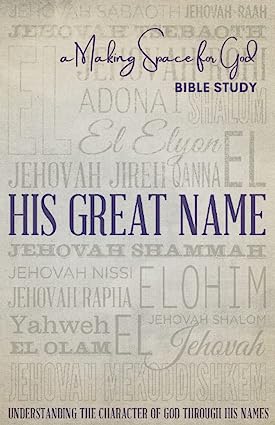Tonight we are concluding our study of Joanne Ellison’s book His Great Name. Please read Chapter 11 (El Elyon) and Chapter 12 (Jehovah Rohi).
I imagine that Ellison intentionally concluded her lesson book with the name of Jehovah-rohi because this name is the most intimate name for God, and it is the one that Jesus himself uses for himself. Throughout the Hebrew Scriptures, and specifically in the Psalms and the Prophets, God is seen as the shepherd of his people. Traditionally, the leaders of Israel were considered their people’s shepherds, such as the judges (2 Sam. 7:7) or David (2 Sam 5:2) or even Cyrus of Persia (Isa. 44:28). The Psalms proclaim that the LORD is our shepherd (Psalm 23:1, 28:9, 80:1). The prophets proclaim that it is God who, like a shepherd, with comfort and gather up his scattered people (Isa. 40:11, Amos 3:12, Micah 7:14). And it is the prophets who compare the contemporary wicked shepherds of Israel with the true shepherd who is the LORD and his Anointed (Jer. 23, Eze. 34). It is this name of God, that Jesus that specifically appropriates to himself. (John 10). If you have time today, please read the Scripture pages because these passages not only proclaim the LORD as our shepherd but describe exactly what that means.
Dinner is at 6. The menu is chicken corn chowder (with a vegetarian alternative). Discussion about 6:45. Hope to see you here.
Open your ears, O Rohi of Israel,
Psalm 80:1-7
the one who leads the descendants of Joseph like sheep,
the one who is enthroned over the angels.
Appear in front of Ephraim, Benjamin, and Manasseh.
Wake up your power, and come to save us.
O Elohim, restore us and smile on us
so that we may be saved.
O Yahweh Elohim Tsebaoth, how long will you smolder in anger
against the prayer of your people?
You made them eat tears as food.
You often made them drink their own tears.
You made us a source of conflict to our neighbors,
and our enemies made fun of us.
O Elohim Tsebaoth, restore us and smile on us
so that we may be saved.

